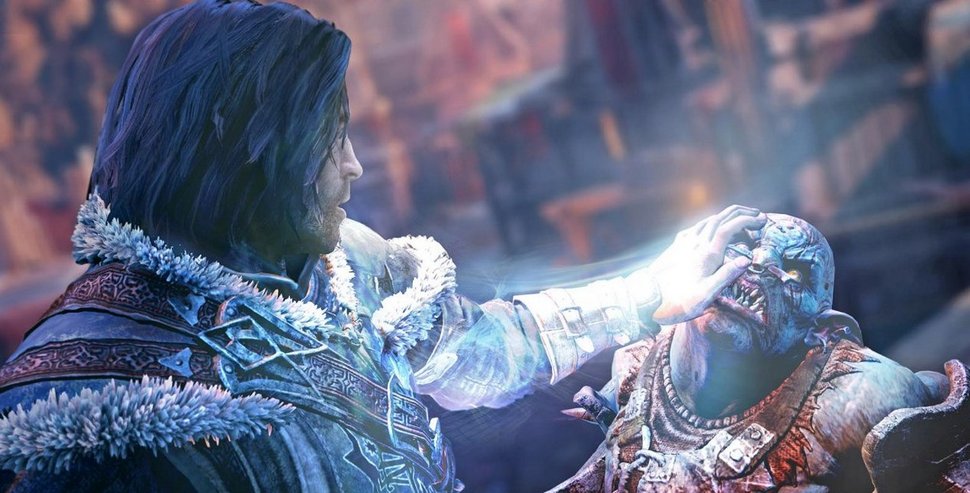From traditional press outlets like IGN jumping on board, to “internet famous” YouTube bedroom operations capitalising on the phenomenon, the term “Let’s Play” has become somewhat ubiquitous in modern gaming culture. It’s nigh on impossible to check out any social media channel without seeing someone uploading their latest in a series of Let’s Plays on a certain game, or even livestreaming coverage of a popular MMORPG.
With all of this free content readily available online, there’s no doubt it’s a great time to be a ravenous consumer. And with publishers readily parting with ludicrous amounts of money for an endorsement from the right YouTuber, it’s easy to get sucked into the idea that these series and videos are pretty lucrative. But, as the saying goes: “There’s no such thing as a free lunch”, so surely someone must be footing the bill for all this content?
Pay to Play?

From a consumer’s perspective, it’s difficult to take a negative slant on Let’s Play culture; it has, after all, “democratised” the gaming industry, and revolutionised how we consume games media. Cast your minds back temporarily to the dark days of the early 2000’s, when you were shackled by dial up internet (if you had any access at all) and your decision as to whether or not to shell out £30 for the latest release hinged on its coverage in Official PlayStation Magazine, and a 20 minute demo if you were lucky. Fast forward to 2016, and we’re positively spoilt with opinion pieces, Let’s Play videos and “Reactions” podcasts – we pick our favourite opinion leaders, buy into their perspective and make well informed purchases based on information from a number of sources.
And of course, it hasn’t taken long for the increasingly savvy PR people to catch wind of this growing trend, diverting large proportions of a game’s marketing budget to reach out to streamers, YouTubers and internet personalities. You only have to quickly Google Pewdiepie’s net worth to realise that publishers are ready to lay down eye-watering amounts of money for a carefully scripted Let’s Play video (and we’re not talking crocodile tears here, we’re talking the kind of sobbing you do at the end of The Titanic). But here’s the thing; these videos work. It was reported that Pewdiepie’s Shadow of Mordor coverage, the piece that generated a whole load of controversy recently, generated a little over 3.7 million views, a figure that’s seemingly unfathomable by traditional media standards.
Given all of the above – the democratising access to a wealth of coverage, the mind-boggling sums laid down by developers and the consequent rise to fame of potentially any gamer with steady broadband and a webcam, it’s easy to dupe yourself into believing that all that free content you consume doesn’t have a cost; it’s effectively a free ticket that everyone benefits from, right?
Wrong.
Try Before You Don’t Buy

What about when “Let’s Play” turns into “Let’s Not Play”? When the constant availability of free content online deters gamers from actually, well, gaming, and giving titles and developers their all-important financial support? What about when the Let’s Play video crosses the line from clever promotional technique to a means to bypass the cost of a game altogether?
Here’s a case in point: Whilst searching for the above notorious Shadow of Mordor coverage, multiple results popped up from competing YouTubers offering full play-throughs of the entire game. That’s right, a solid, AAA 30 hour title condensed into a series of YouTube videos. Sure, these pieces of content are stylised as “Walkthroughs”, and maybe many gamers head there for advice, but of the 800,000 users who watched the game’s final battle online, how many do you think realistically purchased the game? It’s easy to placate yourself at this point that “Warner Brothers is a huge studio” or that “Shadow of Mordor probably turned a massive profit” – in fact, both of these points are true, but let’s be honest with ourselves, it’s not just AAA titles we’re streaming, is it?
Let’s take another example, one that you might have heard of in the gaming press of late; That Dragon, Cancer. The product of a family endeavour, That Dragon, Cancer chronicles the heart-breaking story of a family affected by the life-threatening illness, and the sheer struggle required simply just to compute that kind of information. The game, however, is yet to turn a real profit, and why does the developer think this is the case? You guessed it; Let’s Play videos. A quick search for That Dragon Cancer brings up pages of results, videos ranging in length from 1 – 2 hours, pieces of content that clearly allow YouTubers to make money from the game, whilst simultaneously removing the gamer’s need to purchase it in the first place.
“With Great Power…”

But here’s the crux of the issue: It’s not the YouTubers themselves who are at fault, they are, after all, creating good quality content that entertains, and should rightfully be paid for it. It’s not even the studios who invest millions of dollars in stealthily promoting their games (okay, they’re hardly squeaky clean, but that’s a different rant for another time). It’s you, me and everyone else who can consume this content online with a clear conscience. It’s the Limewire generation who would happily decimate their PC with viruses for Eminem’s latest album, the same people who stream their TV shows and films online.
These pieces of media that we so readily consume, from the games we play to the TV shows we follow, have a cost, a financial expense. The coders, programmers and illustrators that make up our favourite studios have families to support, holidays to take and, probably, games to buy for themselves. It’s easy to assume there’s nothing inherently wrong with watching some Let’s Play videos on the internet, especially if – as you probably tell yourself – you wouldn’t have bought the game anyway, but these figures add up. The top three hits alone on YouTube for That Dragon, Cancer total over 1,000,000 views, and how many of those people do you think paid for the title?
The positive impact Let’s Play videos, Twitch streams and “Reactions” have cannot be understated; they have, after all, gotten us to a place in the industry where the consumer is more empowered than ever before. But as we respect their power, so too must we respect their true cost. Watch content online, support your favourite YouTubers (they do create great videos) but just remain aware that that content you’re consuming most certainly isn’t free, someone is footing the bill for it, and they might not always be able to carry the cost.
Some of the coverage you find on Cultured Vultures contains affiliate links, which provide us with small commissions based on purchases made from visiting our site. We cover gaming news, movie reviews, wrestling and much more.



